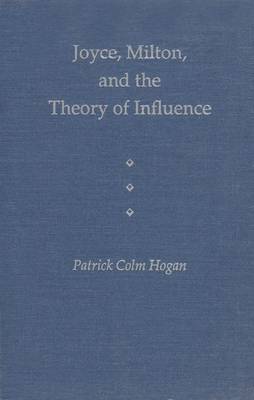Florida James Joyce
1 total work
Patrick Hogan examines the complex and conflicted relation of James Joyce's works - primarily the epic novels ""Ulysses"" and ""Finnegan's Wake"" - to one of the most important and influential epics in English, Milton's ""Paradise Lost"", and to other Milton works. Though Stephen Dedalus expresses his poetic ambition as ""rewriting Paradise Lost"", though he teaches ""Lycidas"" and though Milton is amply present in ""Finnegan's Wake"", virtually nothing has been written on this important literary relationship. Hogan traces the deep structural affinities that link the writers, arguing that Milton provided a crucial model for Joyce to create his great ""works of mourning"", ""Ulysses"" and ""Finnegan's Wake"". In addition, Hogan sets the novels in a larger tradition of European and Middle Eastern retellings of the fall of humankind, incuding 18th- and 19th-century revisions of ""Paradise Lost"". From this perspective, he analyses the structure and technique of ""Ulysses"" and of ""Finnegan's Wake"" and interprets key passages in a way that helps make these works comprehensible even to a novice reader. As part of his study Hogan draws on psychoanalysis, cognitive science, Sanskrit aesthetics, and cultural materialism to formulate a theory of influence with implications that reach beyond the study of Joyce and Milton.
